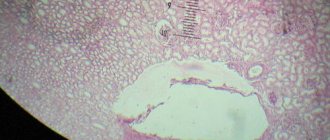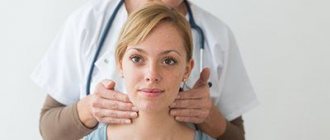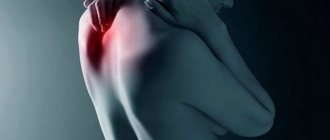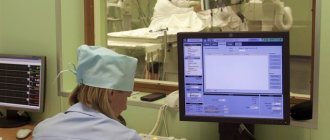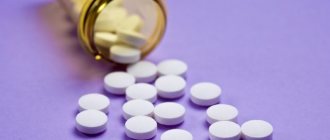Arterial hypertension (AH, arterial hypertension) is a pathological condition that leads to increased blood pressure, as a result of which the structure and function of the arteries and heart are disrupted.
Medical statistics claim that 30-40% of the world's inhabitants suffer from hypertension. Among people over 65 years of age, the disease is registered in 70%.
1
ABPM in the diagnosis of hypertension
2 Diagnosis of hypertension at MedicCity
3 Diagnosis of arterial hypertension
Hypertension significantly affects the quality of life: it causes attacks of headaches and dizziness, and affects performance. With long-term hypertension, irreversible changes occur in human organs and systems that threaten not only health, but also life itself.
Target organs for arterial hypertension:
- heart (left ventricular hypertrophy, heart failure, angina, myocardial infarction, etc.);
- brain (hypertensive encephalopathy, ischemic or hemorrhagic stroke, dementia);
- blood vessels (reduced arterial patency, aortic aneurysm);
- eyes (hemorrhages, retinal lesions, blindness);
- kidneys (renal failure).
1 ABPM for hypertension
2 ABPM for hypertension
3 ECHO-CG for hypertension
What is arterial hypertension?
Arterial hypertension syndrome is an increase in blood pressure (BP) in an adult above 130/80 mmHg. Art. It occurs for unknown reasons or is of secondary origin. As a result of increased tension in the vascular walls, they change, as a result of which almost all organs suffer. At the late stage of hypertension, it leads to the development of severe complications, which often cause disability or death.
Treatment of arterial hypertension with modern drugs helps to avoid complications and prolong active life.
Complications of arterial hypertension
Under conditions of constantly elevated blood pressure, the walls of blood vessels thicken and lose their ability to relax, which prevents normal blood supply and saturation of tissues and organs with oxygen and nutrients. Various serious complications arise, including the following:
- Hypertensive crisis;
- myocardial infarction;
- stroke;
- angina pectoris;
- heart failure;
- cardiac ischemia;
- chronic renal failure;
- retinopathy;
- atherosclerosis, etc.
Causes of arterial hypertension
The classification of arterial hypertension includes dividing it into types depending on its origin. There are essential and symptomatic (secondary) forms of pathology:
- essential arterial hypertension has no known scientific cause; it is believed that a complex of hereditary changes and negative external factors (stress, smoking, excess salt in food, etc.) is involved in its development;
- symptomatic arterial hypertension occurs as a result of other diseases - pathology of the kidneys, renal vessels, endocrine glands, nervous system, blood vessels and heart, as well as taking certain medications.
90-95% of patients have primary hypertension, or essential hypertension. In these cases, the causes of arterial hypertension may be:
- genetic changes inherited from parents;
- smoking;
- overweight;
- lack of physical activity;
- excess salt in the diet;
- regular alcohol consumption;
- persistent or acute stress;
- elderly age;
- chronic diseases of the kidneys, adrenal glands, thyroid gland;
- breathing disorders during sleep.
The pathogenesis of arterial hypertension is associated with the activation of a cascade of chemical reactions in the body, which lead to increased tension in the vascular wall and impaired sensitivity to vasodilating factors. Most medications for this disease act on one or another link in this cascade of reactions, blocking it at the molecular level.
Additional recommendations
The risk of relapse of the disease remains high even after recovery. This risk can be minimized by adhering to certain restrictions. The list is small and will be useful not only for hypertensive patients, but also for people who care about their health.
The bathhouse is a taboo for hypertensive patients. A sharp change in temperature can lead to hypertensive crisis and other consequences
Necessary:
- Quit smoking and alcohol, which negatively affect the condition of blood vessels.
- Introduce regular physical activity into your daily routine, as agreed with your doctor.
- Limit salt intake to a minimum.
- Eliminate stressful situations. If this is not possible, it is necessary to take sedatives that calm the nervous system.
- Minimize the amount of salt in your diet. Exceeding the permissible doses of this product leads to fluid retention in the body, which leads to changes in blood pressure and deterioration of the heart and circulatory system.
- Lose weight. Considering that every excess kilogram adds 2 mmHg. to the numbers on the tonometer. This means that losing weight in this case is not a tribute to the fashion for slimness, but taking care of your own health.
- Be sure to take the hypertensive medications prescribed by your doctor. It is important to do this not only during an exacerbation, but also during remission of the disease.
- When creating a menu, you should pay attention to healthy low-calorie foods rich in vitamins, fiber and microelements. The most beneficial for hypertensive patients are: vegetables, fruits, dried fruits, cereals, low-fat dairy and fermented milk products, lean meats and fish. You should avoid fatty meats, butter and margarine, smoked foods, and preserves.
Hypertension is a disease that does not disappear on its own. Only an integrated approach can achieve lasting results and improve the patient’s condition, bringing it closer to normal levels.
Degrees and types of arterial hypertension
The degree of arterial hypertension is determined depending on the level of blood pressure before treatment. They do not directly affect the prognosis of the disease, since even with the initial degree of hypertension, but a long course of the disease, changes can form in the body leading to a heart attack or stroke.
- Arterial hypertension of the 1st degree is accompanied by an increase in blood pressure less than 160/100 mm Hg. Art. and is considered soft. Treatment usually begins with lifestyle changes, then medications are added.
- Stage 2 arterial hypertension – increased blood pressure to 180/110 mm Hg. Art., or moderate hypertension. It is usually accompanied by complaints and requires constant medication.
- Arterial hypertension of the 3rd degree - a rise in blood pressure more than 180/110 mm Hg. Art., it is often called “malignant” if it cannot be treated with medications; a significant proportion of cases of this form are associated with symptomatic hypertension.
The stages of arterial hypertension are of much greater importance in determining treatment tactics. They do not depend on blood pressure numbers, but are determined by the severity of damage to internal organs:
- Stage I is not accompanied by changes in the vascular wall, the progression of the disease can be stopped.
- Stage II – the vessels of the heart, brain, kidneys, eyes, peripheral arteries are affected, the wall of the heart thickens, the disease becomes irreversible.
- Stage III – complications of arterial hypertension develop – stroke, heart attack, heart or kidney failure and others.
Symptoms of hypertension
Signs of the disease may manifest themselves differently depending on the stage at which hypertension occurs.
Symptoms that are most often observed with hypertension:
- headaches and dizziness of various types
- feeling of heaviness and pulsation in the back of the head
- cardiopalmus
- general weakness
- problems with coordination of movements (sometimes)
- intolerance to loud sounds
- photophobia
- nosebleeds
- nausea
- feeling of fear.
If symptoms appear, make an appointment with a cardiologist to diagnose and treat a possible disease.
Symptoms and diagnosis
Often high blood pressure is not accompanied by complaints, but this does not mean that it does not harm blood vessels. Typically, the only way to know if a patient has high blood pressure is to measure it regularly with a blood pressure monitor.
In some cases, patients feel:
- dull headaches, heaviness in the back of the head;
- attacks of dizziness;
- nosebleeds;
- teenagers and young adults experience increased heart rate.
Symptoms of hypertension that require urgent medical attention:
- Strong headache;
- anxiety, excited state;
- shortness of breath, heaviness in the chest;
- severe nosebleeds.
In this case, blood pressure exceeds 180/110 mm Hg. Art. This condition is especially dangerous in pregnant women.
Diagnostic methods:
- general blood and urine analysis, determination of blood sugar, potassium, sodium, lipids, creatinine clearance, uric acid, transaminases, and protein levels in urine;
- ECG, in case of rhythm disturbances - daily ECG monitoring, in case of suspected ischemic changes - stress test (VEM, treadmill);
- 24-hour blood pressure monitoring;
- EchoCG;
- duplex scanning of brachiocephalic arteries;
- Ultrasound of the kidneys;
- fundus examination.
After the study, the likelihood of complications developing is determined.
It depends on the degree of hypertension, the presence of risk factors (smoking, obesity and many others) and damage to internal organs.
- Risk 1 (low) is defined as 1 degree of increase in blood pressure without risk factors.
- Risk 2 (medium): increase in blood pressure to 160/100 plus 1 - 2 risk factors or to 180/110 without these factors.
- Risk 3 (high): stage 1 hypertension plus 3 or more risk factors, damage to internal organs, especially the kidneys, diabetes; in grade 2 hypertension, these conditions are supplemented by the presence of only 1–2 risk factors, and in grade 3, a high risk of complications is observed with 0–3 risk factors without damage to internal organs.
- Risk 4 (very high): mild to moderate hypertension plus heart attack, stroke, or other severe complications; severe hypertension plus even asymptomatic damage to internal organs.
How to diagnose the disease?
When the first symptoms of hypertension appear, consult a cardiologist. He will conduct an examination and refer you for tests:
- general blood and urine analysis;
- blood test for hemoglobin;
- urine test for protein and glucose;
- electrocardiography;
- echocardiography;
- chest x-ray;
- biochemical blood test to detect cholesterol, urea, glucose and calcium levels;
- phosphates and uric acid;
- CT scan;
- ultrasonography.
Based on the results of the tests, the attending physician will determine whether hypertension is present, the stability of the increase in pressure, the degree of development of pathological changes in the internal organs, and the cause of the increased pressure.
Treatment of arterial hypertension
The main methods of treating arterial hypertension:
- lifestyle changes, avoiding salty foods, increasing physical activity;
- taking prescribed medications in the form of tablets with daily blood pressure monitoring;
- in secondary forms - treatment of the underlying disease;
- Sometimes symptomatic hypertension requires surgery, for example, removal of an adrenal tumor - pheochromocytoma.
Treatment of stage 2 hypertension
How to treat stage 2 hypertension? The scheme is drawn up by the local therapist. If necessary, a consultation with a cardiologist and neurologist is scheduled. Traditional methods of treating stage 2 hypertension include:
- To eliminate blood thickness (thin the blood flow), you should take Aspirin, Cardiomagnyl, Heparin, Aspicard.
- To normalize blood pressure, diuretics (diuretics) are prescribed, such as Diuver, Furosemide, Piretanide, Torasemide, Veroshpiron, Ravel.
- For this diagnosis, thiazides (thiazide drugs) such as Arifon, Chlorthalidone, Indapamide are recommended.
- To reduce blood cholesterol, you should take lipid-lowering drugs such as Atorvastatin, Atoris, Liprimar, Zovasticor.
- In order to dilate blood vessels, antihypertensive drugs of different groups are prescribed, such as Physiotens, Artil, Bisoprolol, Lisinopril.
It is important to consider that the quality of treatment largely depends on compliance with the instructions for their use. Self-medication for hypertension is dangerous. Such experiments can result in disability. The therapist selects the treatment regimen individually, taking into account the age, build and other health characteristics of the individual patient.
Treatment of hypertension at the clinic “Mom, Dad, Me”
At the first signs of increased blood pressure, we recommend that you contact a cardiologist at one of the branches of the “Mom, Dad, Me” family clinic network, located in Moscow. Our advantages:
- reception of adults;
- performing the most important diagnostic studies - ECG, EchoCG, HM ECG;
- if myocardial infarction is suspected, urgent determination of troponins in the blood;
- in-depth laboratory diagnosis of metabolic disorders aggravating the course of hypertension;
- development of an individual treatment and observation plan;
- affordable prices for services in our clinic.
Reviews
Good clinic, good doctor!
Raisa Vasilievna can clearly and clearly explain what the problem is. If something is wrong, she speaks about everything directly, not in a veiled way, as other doctors sometimes do. I don’t regret that I ended up with her. Anna
I would like to express my gratitude to the staff of the clinic: Mom, Dad, and me. The clinic has a very friendly atmosphere, a very friendly and cheerful team and highly qualified specialists. Thank you very much! I wish your clinic prosperity.
Anonymous user
Today I had a mole removed on my face from dermatologist I.A. Kodareva. The doctor is very neat! Correct! Thanks a lot! Administrator Yulia Borshchevskaya is friendly and accurately fulfills her duties.
Belova E.M.
Today I was treated at the clinic, I was satisfied with the staff, as well as the gynecologist. Everyone treats patients with respect and attention. Many thanks to them and continued prosperity.
Anonymous user
The Mama Papa Ya clinic in Lyubertsy is very good. The team is friendly and responsive. I recommend this clinic to all my friends. Thanks to all doctors and administrators. I wish the clinic prosperity and many adequate clients.
Iratyev V.V.
We visited the “Mama Papa Ya” Clinic with our child. A consultation with a pediatric cardiologist was needed. I liked the clinic. Good service, doctors. There was no queue, everything was the same price.
Evgeniya
I liked the first visit. They examined me carefully, prescribed additional examinations, and gave me good recommendations. I will continue treatment further; I liked the conditions at the clinic.
Christina
The doctor carefully examined my husband, prescribed an ECG and made a preliminary diagnosis. She gave recommendations on our situation and ordered additional examination. No comments so far. Financial agreements have been met.
Marina Petrovna
I really liked the clinic. Helpful staff. I had an appointment with gynecologist E.A. Mikhailova. I was satisfied, there are more such doctors. Thank you!!!
Olga
The danger of high blood pressure
The main danger of hypertension is its complications, leading to disability and death.
The most severe complications:
- from the heart - heart attack, development of arrhythmia, heart failure;
- in the brain - stroke, loss of memory and intellectual abilities (dementia);
- from the eyes - severe vascular disorders in the retina;
- kidney – the occurrence of failure;
- vessels - aneurysm (sac-like expansion) of the aorta, the rupture of which leads to almost instant death.
Folk remedies
When treating illness at home, many people prefer to use folk remedies. This therapy involves the use of medicinal plants that have a positive effect on the cardiovascular system.
You can treat the disease with the following recipes:
- Treatment can also be carried out with peppermint, cinquefoil, chamomile, and yarrow. These herbs go well together.
- Prepare a decoction of motherwort, horsetail, marsh cudweed, and valerian root. All plants must be taken in the same quantity. This remedy has diuretic effects and allows you to cope with single surges in blood pressure.
- Bee products and citrus fruits are actively used in the treatment of hypertension.
- You can treat with viburnum juice. To reduce blood pressure, it should be consumed three times a day, a quarter glass.
Folk remedies help cope with unpleasant symptoms of the disease and speed up the effectiveness of traditional therapy. Such recipes have proven their benefits over many centuries. People whose bodies do not tolerate medications well turn to this type of therapy. But it is important to remember that treatment of the disease with traditional recipes can only be carried out after consultation with a doctor.
Diet for hypertension
In order for the kidney vessels to function normally, hypertensive patients with any stage of the disease must adhere to certain nutritional rules. For example, it is important to control the water and salt balance of the body, to prevent the formation of stagnation and, as a consequence, stage 2 hypertensive crisis. Fatty, fried, sweet and smoked foods are prohibited.
Seven foods that lower blood pressure:
- Blueberries – Blueberries are rich in natural substances called flavonoids.
- Fresh leafy greens such as fenugreek leaves, kale, mint leaves, patchouli, dill greens, mustard leaves, curry leaves, beet greens, Swiss chard, arugula, broccoli, celery and spinach are high in potassium
- Potatoes - contain a lot of potassium and magnesium
- Beets – Nitrates in beet juice are known to lower blood pressure
- Skim milk is an excellent source of calcium plus low fat levels
- Oatmeal is a high-fiber, low-fat, low-sodium food.
- Bananas – Adds potassium to your diet.
Therapeutic nutrition for stage 2 hypertension allows boiled lean meats, cereals, vegetables and fruits on the menu. Green tea and diuretic herbal decoctions have beneficial properties.
Prevention
Your healthcare provider will likely also suggest a variety of lifestyle changes, including:
- Maintaining a healthy weight;
- A diet rich in fruits, vegetables and low-fat dairy products;
- To give up smoking;
- Limiting salt intake in the diet;
- Limit alcohol consumption. For most adults, this means that it is normal to drink up to one drink per day for women of all ages and men over the age of 65, and up to two drinks per day for men 65 or younger;
- Exercise at least 30 minutes a day. These include walking, jogging, strength training, yoga, and cardio exercises such as cycling.
On your part, methodical adherence to medical recommendations and organization of the correct regimen are required. A healthy lifestyle is the path to recovery. Remember this.
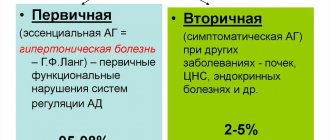
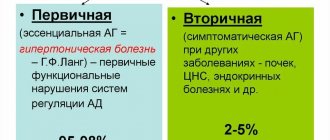
![Table 2. Hemodynamic definition of PH (adapted from [2] with modifications)](https://ms-pi.ru/wp-content/uploads/tablica-2-gemodinamicheskoe-opredelenie-lg-adaptirovano-iz-2-s-izmeneniyami-330x140.jpg)
